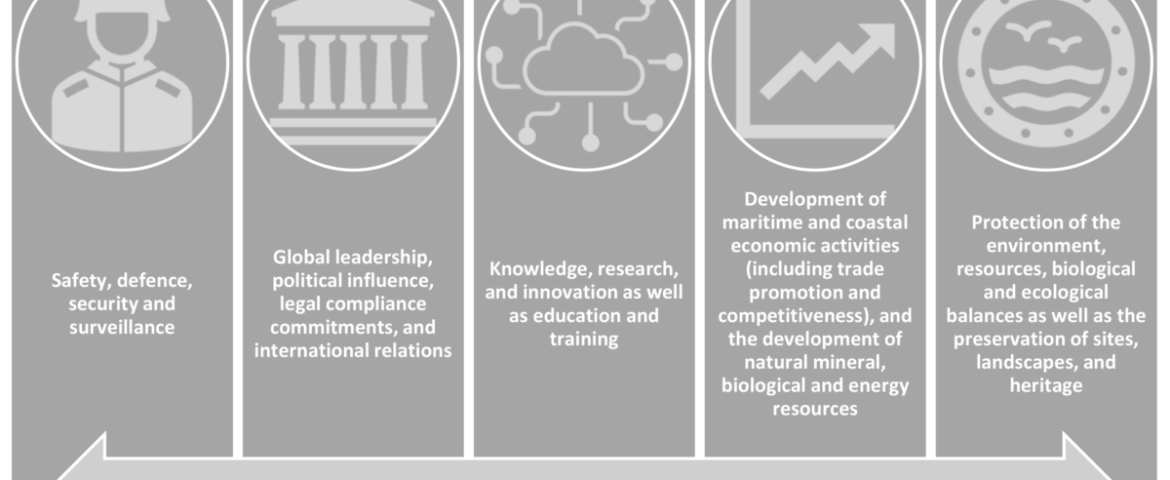Integrated maritime policies (IMPs) provide a comprehensive governance framework to support the sustainable use of the seas and oceans while ensuring a horizon of prosperity for the population of the surrounding coastal regions.
PortEconomics co-director Theo Notteboom along with Hubert Paridaens (Antwerp Maritime Academy), developed a study, published in the academic journal Sustainability, on how IMP governance can be arranged to support more effective policy integration. The authors identify and discuss a number of key strategic and institutional issues which are expected to promote more effective policy integration in IMP development and implementation.
The findings provide recommendations for policymakers and stakeholders.
The full paper can be freely downloaded using the link: National Integrated Maritime Policies (IMP): Vision Formulation, Regional Embeddedness, and Institutional Attributes for Effective Policy Integration.












